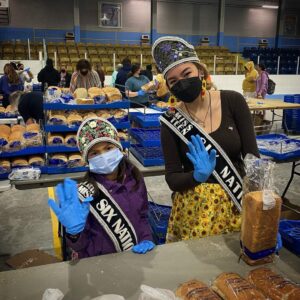Prime Minister Stephen Harper may have boycotted the Commonwealth meeting in Sri Lanka last week, but he still managed to reach the summit of hypocrisy.
Harper confirmed in October that it was with “somewhat of a heavy heart” he would be boycotting the meeting due to Sri Lanka’s human rights record, the specifics of which he was vague. Harper cited extra-judicial killings and the ongoing intimidation and incarceration of political opponents and journalists as reasons, but he remained made no direct reference to Tamils, the genocide they experienced in 2009, and the ongoing oppression they face in Sri Lanka.
Of course, media sources (here, and here) in Canada were quick to pick up on the fact that the diplomatic move was a clear gesture to Canada’s Tamil population, the largest Tamil diaspora in the world with nearly 300,000 people. Toronto alone is now home to the majority of this population, with a very active community in ridings that the Conservatives would like to cultivate a base in.
Toronto-area Tamil activist Pragash Pio, who has long supported Onkwehon:we struggles and has worked to develop relations of solidarity between the Haudenosaunee and Tamil communities, told the Two Row Times that “Harper’s criticisms of Sri Lanka’s Human Rights record and subsequent ‘boycott’ of the [Commonwealth meeting] in Sri Lanka is electoral opportunism and political hypocrisy. Tamil’s make up a significant voting bloc in key ridings in Toronto and are known to be a well organized community with higher then average voter turn out and Harper’s is courting them with this personal boycott.”
Sri Lanka shot back last week, with government officials reported to be citing Harper’s move as a way to placate Tamil Tiger activists in Canada. A ridiculous charge, to be sure, considering that Canada has prosecuted people with alleged links to the Liberation Tigers of Tamil Eelam (LTTE) and even dismissed that a genocide ever occurred in 2009 (as this would place Canada under obligations to recognize the country’s refugees). However, cultivating a Conservative base of support amongst Tamils – that’s another thing entirely.
In 2009, the Sri Lankan state has launched a war of annihilation on its minority Tamil population that consisted of a 5-month campaign of indiscriminate shelling and bombing of the north coast, which is home to a majority of the Tamils. The campaign included the deliberate targeting of safe zones, hospitals and schools. The outcome was the death of tens of thousands of Tamil civilians, even if the main objective was the decimation of the Liberation Tigers of Tamil Eelam (LTTE), which many Tamils recognized as their legitimate national organization. Civilians that survived the government onslaught were forced into detention, and some 300,000 internally displaced persons (IDPs) were for long after imprisoned in state-run concentration camps.
For its part, the Canadian government aided Sri Lanka in this war by adding the LTTE to its list of designated terrorist organizations in 2006, and days later raided the offices of the World Tamil Movement, which it also listed as a terrorist organization in 2008. During the course of the genocide, Canada sent aid money to Sri Lanka and demonized Tamils in Canada who were in the streets as “terrorist supporters” for trying to bring attention to the killings in their homeland. Refugees desperately fleeing the genocide were halted, and the claims to be refugees were dismissed as frivolous.
TRT interviewed Pragash Pio over the phone from, who was in Coast Salish ancestral territories this past week speaking at a series of events alongside Onkwehon:we and Palestinian activists at an event “Criminalizing People’s Liberation Movements: Scrap the So-called Terrorist List.” The event also featured Toghestiy, a hereditary chief of the Wet’suwet’en nation who has been involved in the Unis’tot’en Camp. Pio also linked Tamil oppression to Canada’s treatment of Onkwehon:we: “There is also the hypocrisy of the Canadian state accusing the Sri Lankan state of human rights abuses against the Tamil Nation such as land theft, torture, illegal detention, and systematic sexual violence against women when the Canadian state has similar patterns of abuse against First Nations.”
While some Tamils may have appreciated the little boost that Harper’s boycott may have given to their struggle for the recognition of a genocide conducted at the hands of the Sri Lankan government in 2009, Pio sees it differently: “There has been no significant change in the Canadian state’s position on Tamil refugees, deportations to Sri Lanka, and illegal detentions. The CBSA is rigorously contesting in hearings the status of many of the Tamil refugees who arrived by the MV Sun Sea and MV Ocean Lady. There are two cases of deported refugees being tortured, and one murdered because of the CBSA’s collusion with the Sri Lankan security in labeling en masse Tamil refugees as terrorists and security threats has already been discovered.
Canada’s boycott of the Commonwealth summit is especially hypocritical in the face of Canada’s dismissal of some of the findings and recommendations of United Nations Special Rapporteur on the Rights of Indigenous Peoples James Ayana, who toured First Nations communities and met with Onkwehon:we people in early October. Anaya issued strong criticisms of Canada’s “adversarial approach” to land claims, the ongoing issue of missing and murdered native women, and Canada’s rushing ahead with the First Nations Education Act. Canada has also continued to resist calls for an Inquiry into missing and murdered, which was among Anaya’s recommendations.






Comments are closed.